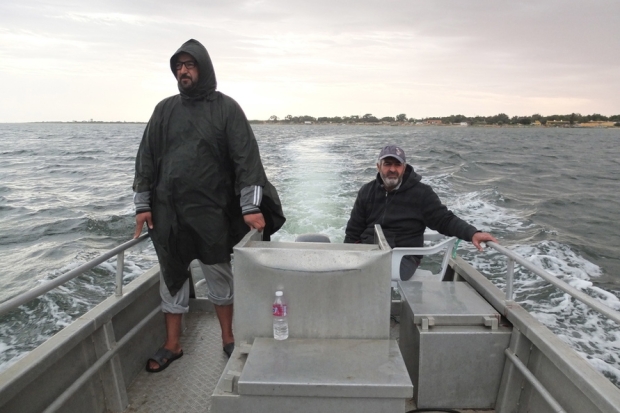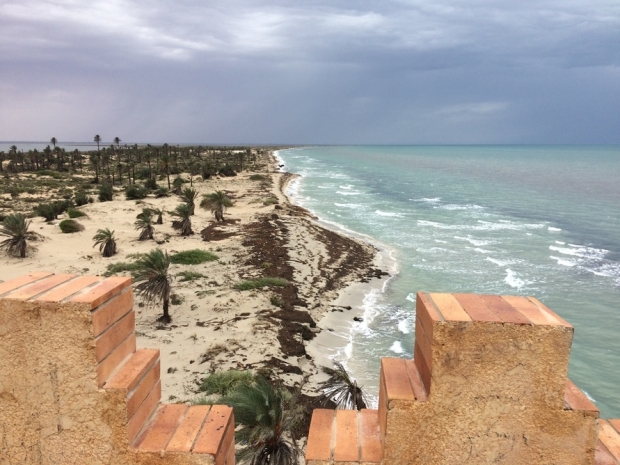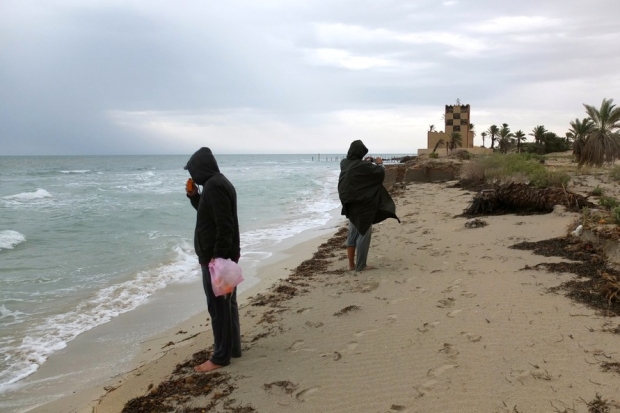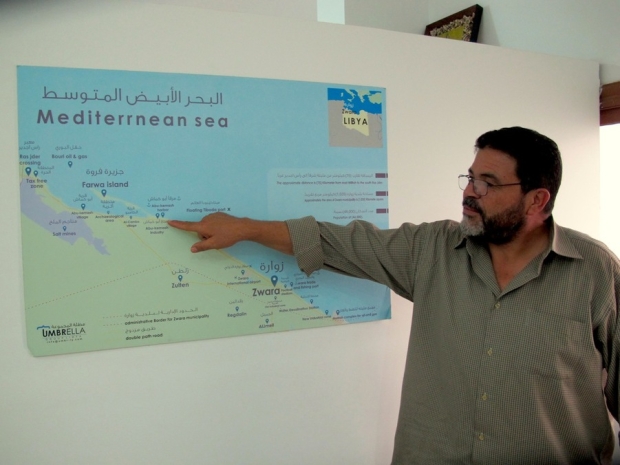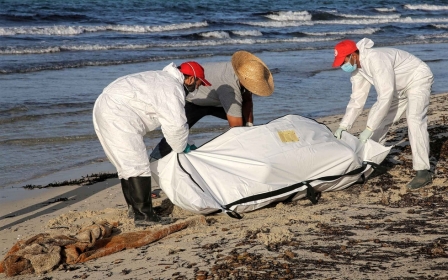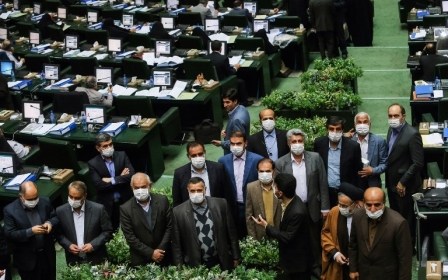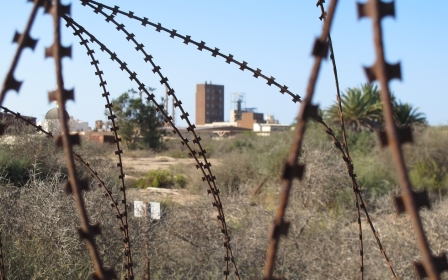The ecologists rescuing the natural wonders of Libya's Farwa island
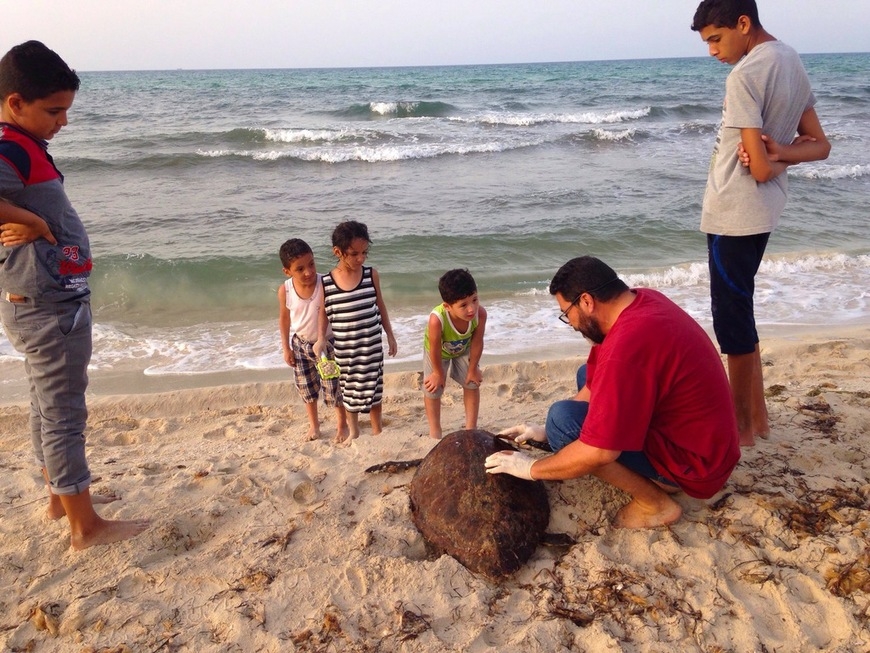
ZUWARA, Libya - It is a quiet Friday morning on Libya's western coast and a group of environmental volunteers is taking a boat to Farwa, an uninhabited island that lies northwest of the country and close to the border with Tunisia.
The three activists park their car in the fishing port in the town of Abu Kammash, known locally as Bukamash, before jumping on a tiny boat. It's a short distance to the island, but the waters are shallow and they will have to walk the last 200 metres.
"You see that building right in front of us? That's the palace," says volunteer Nader Azzabi as he wades through the water, pointing to the old lighthouse. According to Hannibal al-Hush, the head of the Association for Identity and Heritage based in the nearby town of Zuwara, the lighthouse was built by the Italians in the 1920s.
After years of looting and neglect, the historical heritage in many parts of Libya is so scarce that it's easy to understand why the only building on the island is called the "palace".
After decades of neglect, this August the Zuwara emergency committee joined hands with fisherman and volunteers from Bado, the local environmental association protecting marine and wildlife, to clean up Farwa.
During three weeks, with the help of an excavator borrowed from an Italian company, they eliminated the physical barrier that blocked the sea current and joined the island to the mainland.
Beaches strewn with rubbish
They removed tonnes of rubbish from the island and erected a barrier to protect the lighthouse from the rising sea level.
"Those were the most visible improvements but not the only ones," says Sadiq Jiash, the head of the emergency committee in Zuwara.
Today the team will walk along the beach to the opposite point to retrieve a GPS tracker that once marked a nest of sea turtles. The reptiles made their way to the sea more than two months ago, therefore it is no longer needed.
Nader Ghariba, a 45-year-old electrical engineer and co-founder of Bado, says that the association was set up in 2013 and has 30 members "who not only work on a voluntary basis but also put money from their own pockets when needed". The association mainly depends on donations from residents of Zuwara.
The ships throw their garbage in the waters and, as you can see, a lot of it ends up here
- Nader Ghariba, member of the Bado association
"I could well be bringing visitor groups to this spot were it not for the war," says Azzabi, who has a diploma in tourism from Zuwara university.
Emad Ashur, a member of the group, says that they collected up to 50 tonnes of rubbish in August and that they could pick up a similar amount right now.
The activists look for a white plastic box partly buried in the sand. It shows up on a picture they took when they found the sea turtle nest, and now it works as a marker of the location of the GPS device.
Rare turtles
Turtles are among Farwa's most famed inhabitants. Although the majority of them are loggerhead sea turtles, which can be found throughout the world, the island is also home to the Egyptian tortoise, which is critically endangered.
Ashur says that coming across any of the two species is a major highlight for the school groups Bado tours around the island.
Farwa makes a perfect day trip for families or school groups, which the ecologists often take on tours to brief them on the importance of the environment.
These people do not even know that it is actually a crime to kill these animals
- Emad Ashur, member of the Bado association
But there are also those who show up armed with rifles during the stopover that flamingos make on the island to rest before resuming their journey to the south. It's during those days when selfies of Libyans posing with pink feathered "hunting trophies" appear on social media.
"These people do not even know that it is actually a crime to kill these animals," says Ashur, just as he produces a green plastic poncho from his backpack to cope with the heavy rain.
The white sand under our bare feet extends as far as the eye can see, as does the rubbish. One could easily blame all of the plastic bottles on occasional visitors, but finding them in the same proportion after a three-mile walk from the lighthouse is a clear indication that most of the waste is brought in by the sea.
"The ships throw their garbage in the waters and, as you can see, a lot of it ends up here," explains Ghariba, stressing the fact that the island is uninhabited.
The three men start to dig in the sand looking for the device which was placed to mark the position of the sea turtles nest, but it turns out to be a difficult search.
After one hour, they give up and decide to go back, but not empty-handed, as the volunteers now collect waste in plastic bags on the way to the lighthouse.
"I do this between two and three days a week, and I never get tired," insists Ashur, as he tries to cope with his increasingly voluminous load.
Back on the boat bound for the port, a fisherman who has just cast his net in the water waves his hand to offer us fish.
People are slowly getting to realise that Farwa is a unique treasure that belongs to us, and that it's also us who have to protect it
- Sadiq Jiash, head of the emergency committee in Zuwara
One minute later, two playful dolphins appear to our starboard. They jump in a perfectly synchronised manoeuvre until the waters get too shallow for them to continue.
The video taken by the ecologists of the island with their mobile phones is already circulating through social media before they reach port.
"People are slowly getting to realise that Farwa is a unique treasure that belongs to us and that it's also us who have to protect it," says the emergency committee's Jiash.
But it's not easy to conduct preservation of any kind in today's Libya, as several governments are currently vying for power in the country torn by civil war.
Natural bounty
Bado has its headquarters in the grey central square in Zuwara, which has been known as "the Piazza" since the Italian occupation, on the ground floor of a hotel whose windows were smashed in 2011 during Libya's civil war, even before its inauguration.
Inside, its walls are plastered with colourful photos of sea turtles, flamingos, and some green lizards which, Bado says, are endemic to Farwa.
"All the pictures were taken on the island of Farwa, just 25 miles away from here. That's where we concentrate most of our energies," said Shokri Dahe, the association's president.
Due to the 2011 civil war, only the first stage of the project - to build the land bridge that turned Farwa into a peninsula - was executed, but it had a devastating effect.
"They physically linked the island with the coast, so the sea currents were blocked and the waters between the former island and the neighbouring village of Bukamash turned putrid," said the activist, pointing to the finger-shaped island turned into a peninsula on the map behind him.
The uncontrolled dumping of waste from the petrochemical plant next to Abu Kammash, known as GCCI, added to the drama. The plant emits poisons such as mercury and cadmium that leach into the environment and, as decay sets in, locals say the effects are worsening.
According to Dahe, Bado sent samples of grass, land and water from the area to a laboratory in Tunisia for analysis in 2013. It confirmed that the surrounding olive groves, dates, and the earth and its worms are full of poison. And due to ongoing war and instability, and the lack of expertise to decommission the site, next to nothing has been done to contain it.
"When we talk about the importance of the environment, many take it as if it were a luxury, a frivolity in the midst of the disaster that is today Libya. They do not understand that it can be something as basic as what you eat and, here, that is what kills you," says Dahe.
This article is available in French on Middle East Eye French edition.
New MEE newsletter: Jerusalem Dispatch
Sign up to get the latest insights and analysis on Israel-Palestine, alongside Turkey Unpacked and other MEE newsletters
Middle East Eye delivers independent and unrivalled coverage and analysis of the Middle East, North Africa and beyond. To learn more about republishing this content and the associated fees, please fill out this form. More about MEE can be found here.


